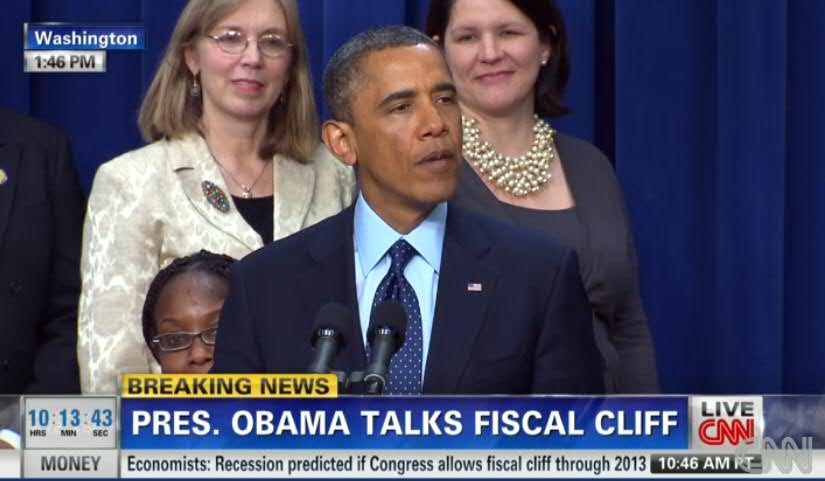By David Li, bostonese.com
In the afternoon of Dec. 31, 2012, President Obama held a news conference in the White House. Obama told reporters that a deal that would prevent taxes going up for 98% of Americans on Jan. 1, 2013 is “within sight” while also stayed that he would have preferred a larger deal to deal with the nation’s budget deficit and mounting debts. Obama didn’t take any questions from reporters.

CNN’s webcast of the news conference.
|
|
“There are still issues left to resolve, but we are hopeful Congress can get it done,” Obama said. He also joked that this congress would use the last second before any deadline if given the chance. This deal would be the first of many steps in restoring the nation’s fiscal health, according to Obama.
The President seemed to be in a good mood, joking having to spend New Year’s Eve in Washington D.C. waiting for the deal from congress. He also invited people standing behind him during the conference for a photo op at the end of the conference. |
It appears that the proposed deal would do little in cutting spending by the federal government. Obama stated that he would prefer a balanced approach to solve the nation’s budget deficit and he would object further spending cuts without raising revenue (or tax) in the new congress to be seated in January 2013.
So, if this deal is to be passed by Congress and signed into law by Obama before the ball drops in Times Square in New York City, it would do too little to fix the nation’s huge financial problem but saving faces for politicians in Washington D.C. Maybe going over the fiscal cliff is a better deal for the national’s financial health in the long run, and it would certainly be the biggest and boldest action the Congress has taken in years.
|
|
According to Wikipedia, the “fiscal cliff” refers to the economic effects that could result from tax increases, spending cuts, and a corresponding reduction in the US budget deficit beginning in 2013 if existing laws remain unchanged. The deficit—the difference between what the government takes in and what it spends—is projected to be reduced by roughly half in 2013. The Congressional Budget Office estimates that this sharp decrease in the deficit (the fiscal cliff) will likely lead to a mild recession in early 2013. |